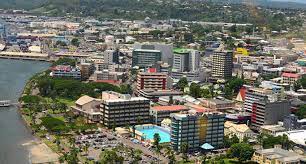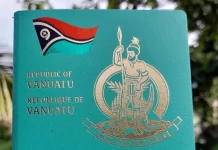The approvals process for foreign and domestic investment proposals is set to become more business-friendly following reforms spearheaded by the Ministry of Commerce, Trade, Tourism and Transport (MCTTT) to streamline Fiji’s investment regulatory framework.
Fiji’s Investment Act 2020 will increase the country’s ability to attract foreign and domestic investment across key sectors, with the aim of generating foreign exchange, knowledge and technology-intensive jobs and helping with the long term recovery of the Fijian economy, in the wake of COVID-19 impacts.
Passed by the Fijian Parliament on 03 June, the new law, which replaces the Foreign Investment Act of 1999, also protects domestic interests with provisions on reserved and restricted activities where domestic businesses are considered vulnerable.
“The law was drafted following extensive consultations by MCTTT with key stakeholders and the same was done by the Fijian Parliament’s Standing Committee on Justice, Law and Human Rights across Fiji,” MCTTT Permanent Secretary, Shaheen Ali said. “Not only does the law include international best practices, it protects the interests of Fijians. For investors, it eases their way in doing business in Fiji as the new law is streamlined and user-friendly.”
The reform aligns with a priority of Fiji’s 5-Year and 20-Year National Development Plan to modernize the business regulatory environment for inclusive and sustainable private sector development.
With the support of the governments of Australia and New Zealand through the Fiji Partnership, IFC, a member of the World Bank Group, provided technical expertise to the MCTTT in drafting the legislation.
“The new Investment Act is a great step towards improving the ease of doing business in Fiji” said John Feakes, Australian High Commissioner to Fiji. “I congratulate the Fijian Government for working to boost investment in Fiji, and its long-term economic future.”
The new law removes the previous process of applying for a Foreign Investor Registration Certificate. Under the reform, investor permits are to be managed by the Department of Immigration. Furthermore, investor rights will also be protected under the new law with provisions for legal recourse.
“This new legislation demonstrates the Government of Fiji’s commitment to improving the business enabling environment and attracting productive foreign direct investment,” said Jonathan Curr, New Zealand High Commissioner to Fiji. “The Act should improve the assessment of investment proposals while having regard for national interests.”
The law also has provisions on national security allowing the Fijian Government to restrict investment on critical infrastructure such as energy, transport, communications, data storage or financial infrastructure or access to sensitive information or the ability to control sensitive information.
Under the same conditions as domestic investors, foreign investments will report through the Registrar of Companies at the time of business registration and annually report to Investment Fiji.
“Fiji has taken a leap forward in preparing itself and setting a good platform for economic recovery from the impacts of COVID-19, which have decimated its economy,” IFC Resident Representative to Fiji, Kiribati, Samoa, Tonga and Tuvalu, Deva De Silva said.
“IFC’s experience worldwide has shown us that developing the private sector is critical to any economy as it provides 90 per cent of jobs in the developing world. That is why we are interested to help Fiji develop its private sector and help create jobs especially post-pandemic.”
IFC is also assisting MCTTT in the drafting of the regulations of the Act, as well as, in strengthening the capacity of Investment Fiji which will be the implementing agency.
SOURCE: WORLD BANK/PACNEWS















